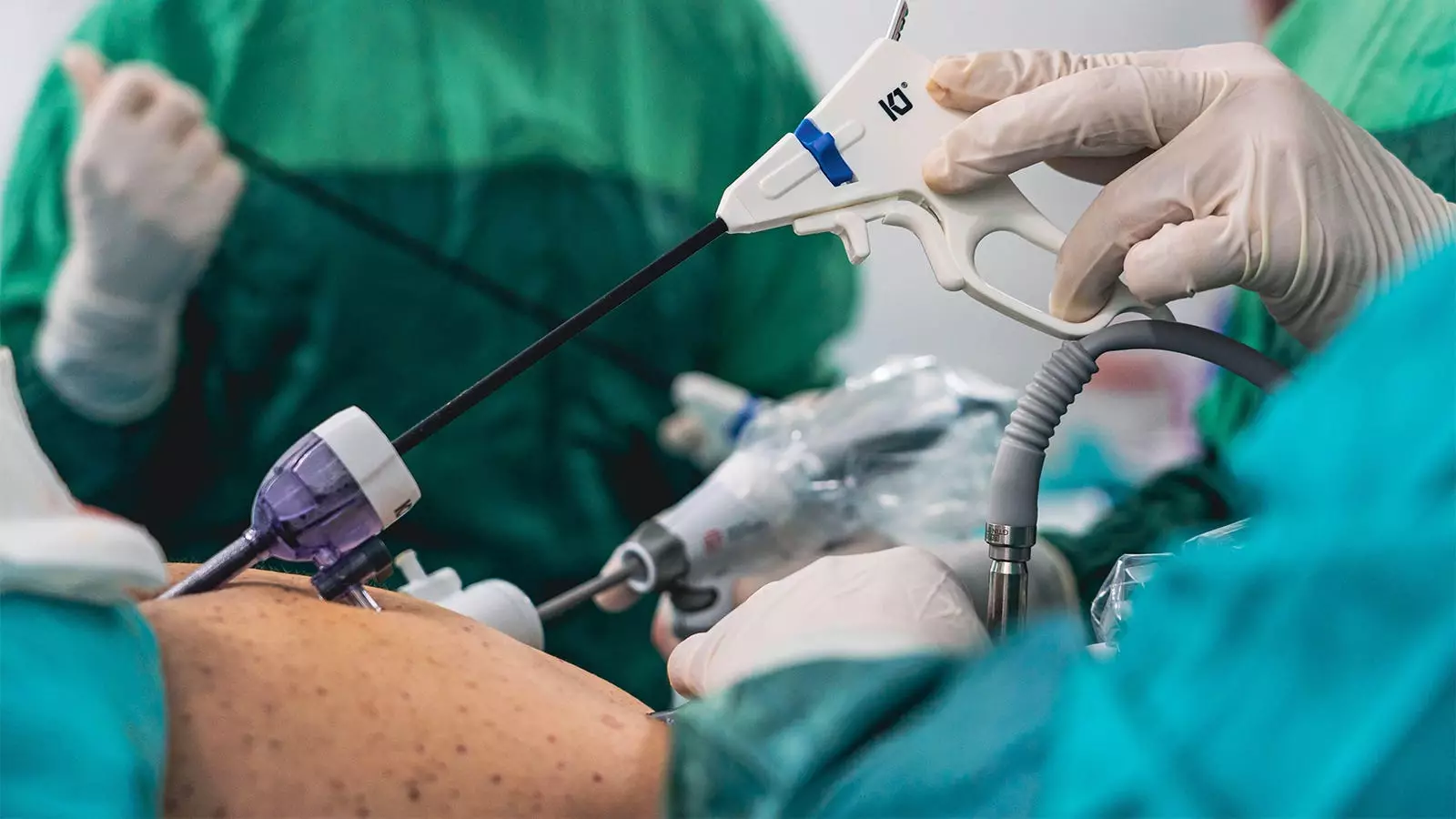The interplay between obesity and liver disease has long intrigued medical researchers, particularly concerning metabolic dysfunction-associated steatohepatitis (MASH) and its relation to cirrhosis. A recent observational study unveiled the profound effects of bariatric surgery on patients struggling with obesity and compensated MASH-related cirrhosis, marking a critical advancement in treatment strategies for this vulnerable population.
Compensated MASH-related cirrhosis often precedes significant liver complications. Traditionally, lifestyle interventions—primarily focusing on diet and exercise—are the main therapeutic recommendations for individuals battling this condition. Unfortunately, merely relying on lifestyle changes is seldom enough to achieve the substantial weight loss required to mitigate the risks associated with liver disease. Researchers have sought alternative, more effective treatments, culminating in the investigation of bariatric surgery’s long-term benefits.
This groundbreaking study reviewed 62 patients who underwent various forms of bariatric surgery, including Roux-en-Y gastric bypass and sleeve gastrectomy. The results were promising: patients exhibited a strikingly reduced incidence of major adverse liver outcomes over 15 years compared to their nonsurgical counterparts.
The study revealed that the surgical intervention group experienced a 15-year cumulative incidence of major liver complications of only 21%, significantly lower than the 46% observed in nonsurgical patients. Likewise, the incidence of decompensated cirrhosis was 16% in those who had undergone surgery, compared to 31% in the control group. These findings underscore a pivotal shift in managing cirrhosis linked to MASH, emphasizing bariatric surgery as an effective therapeutic option.
Dr. Steven Nissen of the Cleveland Clinic, one of the study’s key authors, expressed the potential of bariatric surgery to alter the trajectory of cirrhosis progression. He stated that such interventions could not only alleviate obesity-related comorbidities but also save lives by preventing transitions to more severe liver conditions. This opens new possibilities for patients who may otherwise find themselves in dire circumstances due to concurrent obesity and liver disease.
Bariatric Surgery as a Gateway to Transplant Eligibility
Another crucial implication of this study involves the potential for bariatric surgery to facilitate access to liver transplantation for severely obese patients. Many organ transplant centers have strict criteria regarding body weight, viewing severe obesity as a contraindication due to elevated risks associated with the procedure. The weight loss achieved post-bariatric surgery could transform a patient’s eligibility status, paving the way for lifesaving transplants that would otherwise be unattainable.
The researchers emphasize the importance of tailoring treatments based on individual patient needs. By demonstrating significant health improvements through surgical interventions, it becomes increasingly clear that personalized and aggressive management strategies are necessary for individuals grappling with complex conditions like MASH-related cirrhosis.
Alarming as liver disease can be, the findings regarding the safety of bariatric surgery for patients with compensated cirrhosis are both revelatory and reassuring. Experts like Dr. Wajahat Mehal from Yale School of Medicine highlight that, with appropriate caution, bariatric surgery can be safely performed even on patients harboring liver cirrhosis. However, he also cautions against performing these surgeries in smaller hospitals or centers lacking the experience to handle such cases.
The surgical expertise required to treat patients with underlying liver conditions cannot be overstated. It is vital to ensure that medical centers conducting such operations are well-equipped and knowledgeable about the complexities involving cirrhosis.
Despite its significant findings, this study is not without limitations. The lack of comprehensive data on patients’ physical activity, dietary habits, and substance use during follow-up periods raises concerns. These factors could confound the results, suggesting that surgery-induced weight loss might not solely account for the observed improvements.
Additionally, the study population was predominantly white, limiting the findings’ generalizability across diverse racial and ethnic groups. Future research should strive for a more inclusive approach, ensuring that results are applicable to various demographics.
The implications of this observational study extend far beyond medical statistics; they represent a potential paradigm shift in how bariatric surgery could serve as a cornerstone for treating obesity and MASH-related cirrhosis. The revelations from this investigation present an urgent call to integrate surgical options into the care of patients facing the dual challenges of obesity and liver disease. As medical practice evolves, embracing innovative approaches and furthering research into long-term outcomes could be vital for improving the quality of life and extending longevity for affected individuals.

